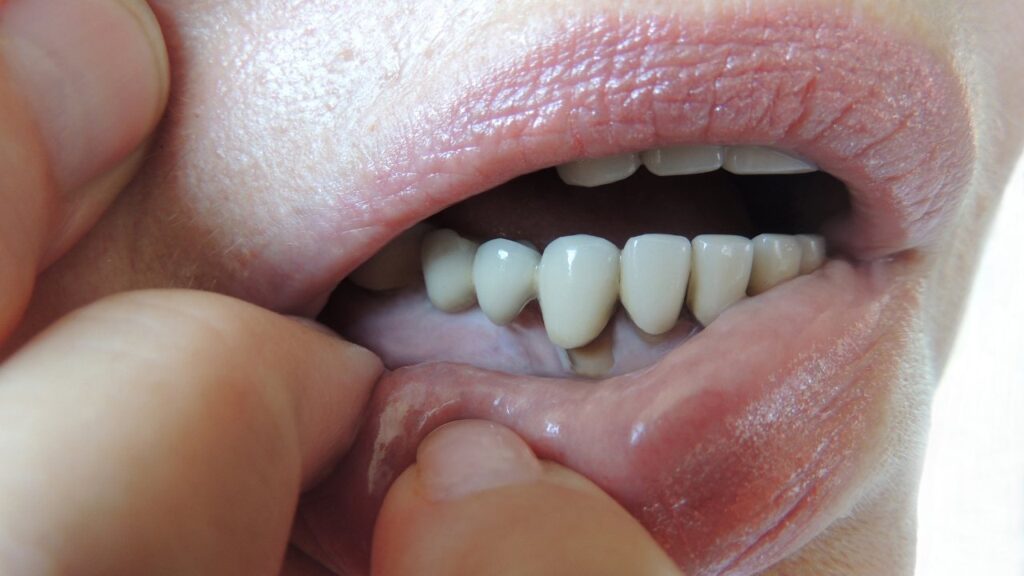
Severe stage IV periodontitis is a serious gum disease that can significantly impact your oral health, including the alignment of your teeth. For patients in Harrisburg, NC, considering or undergoing orthodontic treatment, it’s crucial to understand the challenges and specialized approaches needed to address both periodontal health and orthodontic care. This article explains how periodontitis affects orthodontic treatment and provides insights on managing both conditions effectively for successful results.
What is Severe Stage IV Periodontitis?
Severe stage IV periodontitis is the most advanced stage of gum disease, characterized by extensive loss of the supporting structures of the teeth, including bone loss and deep gum pockets. This condition can cause the teeth to become loose and may lead to tooth loss if not treated promptly.
The symptoms of stage IV periodontitis include swollen, bleeding gums, severe gum recession, and persistent bad breath. As the disease progresses, it significantly impacts the stability of teeth, making orthodontic treatment more complex.
Challenges in Orthodontic Treatment for Stage IV Periodontitis Patients
Patients with severe periodontitis face several challenges when undergoing orthodontic treatment:
- Tooth Stability and Gum Health: The weakened gums and bone structures make tooth movement more difficult, increasing the risk of tooth instability or loss.
- Increased Risk of Complications: The ongoing inflammation and weakened support structures can cause additional complications during orthodontic treatment.
- Pre-Treatment Periodontal Care: It is essential to address the periodontal disease before starting orthodontic treatment. Without managing the gum disease first, orthodontic treatment can worsen the condition.
Preparing for Orthodontic Treatment with Periodontitis
To achieve the best orthodontic outcomes, proper planning and care are necessary. Here’s what needs to be done:
- The Role of Periodontists: A periodontist plays a key role in assessing the extent of the periodontal disease and collaborating with an orthodontist to develop a treatment plan that minimizes risks.
- Treating Periodontal Disease First: Managing and stabilizing the gum disease before moving forward with orthodontic care is crucial. This may involve deep cleaning, root planing, or more advanced treatments to restore periodontal health.
- Collaboration Between Orthodontists and Periodontists: A multidisciplinary approach is essential for success. Orthodontists and periodontists must work together to determine the best course of action, ensuring the stability of teeth while addressing periodontal health.
Orthodontic Treatment Options for Severe Periodontitis Patients
While traditional braces may be used for some patients, those with severe stage IV periodontitis may require different orthodontic approaches to minimize stress on the gums and bones. Some options include:
- Brackets and Wire: Conventional braces may still be effective, but the orthodontist will take special care by applying gentle, controlled forces to avoid damaging the compromised periodontal tissues.
- Mini-Screws and Cantilevers: These appliances allow for more precise tooth movement and can reduce the stress on the gums, offering an alternative to traditional braces for more complicated cases.
- Clear Aligners and Surgical Options: In some cases, clear aligners may be suitable. For more severe cases, surgical options may be necessary to address both the periodontal issues and the misalignment of the teeth.
Maintaining Oral Health During Treatment
For orthodontic treatment to be successful, maintaining oral health is a top priority:
- Special Care Instructions: Patients with severe periodontitis will need to follow a strict oral hygiene routine to prevent further gum deterioration. This includes brushing carefully, flossing regularly, and using mouthwash to reduce bacteria.
- Regular Dental Visits: Regular visits to your Harrisburg, NC dentist are essential to monitor both orthodontic progress and periodontal health. Routine cleanings and checkups will help manage gum inflammation and prevent complications.
- Monitoring Gum Health: Periodontal health must be closely monitored throughout the orthodontic process. It’s essential to adjust the treatment plan to address emerging issues.
Orthodontic treatment for patients with severe stage IV periodontitis can be complex, but with proper management, it is possible to achieve successful results. Collaborating with both a periodontist and an orthodontist in Harrisburg, NC, maintaining excellent oral hygiene, and having regular follow-ups are critical steps to ensure that your treatment proceeds smoothly.
For patients in Harrisburg, NC, consulting with the best dentists in Harrisburg, PA, like Icard & Strein Family Dentistry, can provide the personalized care needed to navigate the challenges of orthodontic treatment while managing periodontal disease.
You can refer to this article by Papageorgiou et al. (2024) for more in-depth information.
By addressing both your orthodontic needs and periodontal health, you can ensure the best possible outcome and maintain a healthy, beautiful smile for years.



